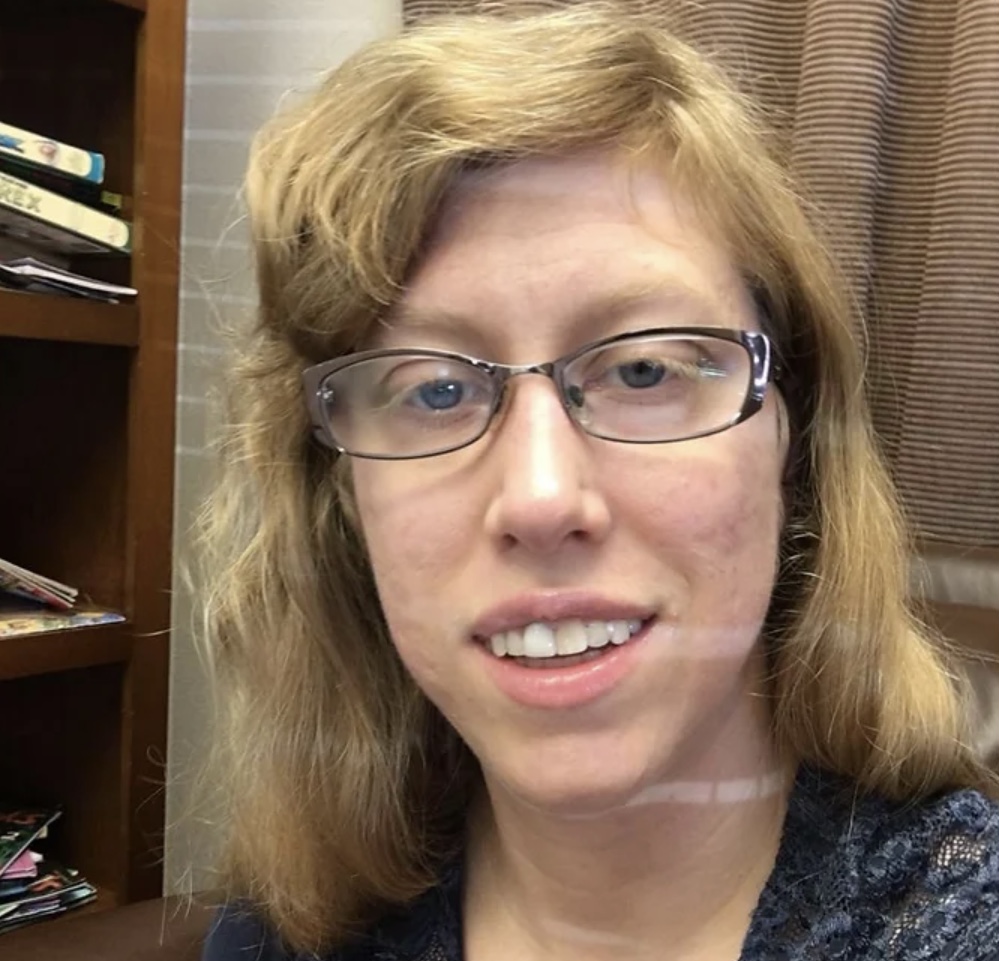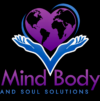Amanda Harris
I have thought about the question, “Where do I belong? The sighted world or the world of the visually impaired?” I have asked this question several times during my life ever since I received my first large print book, and then again after I got my first low vision magnifier. I was born with Nystagmus, an eye condition, where my eyes move continuously in a pattern of a circle and side to side. Up until the age of 11 I struggled to see my school work. My mother used to constantly read my homework to me or write notes explaining why my homework was not completed. Each year she would take me to my eye appointment, I can remember having pain from feeling my eyes move and that I could not see the chart well. Towards the end of fourth grade my life changed, when testing, from a qualified teacher of the visually impaired, showed that I had a visual disability, and that I would benefit from large print.
I do not remember my first large print book, but I remember how heavy and big it was. Having those instead of the regular sized textbooks made me feel different. I remember complaining to my mother about the size, and her response was that she was trying to help and that she had to fight since kindergarten for my books. As the months passed, I finally accepted my large print books and my teachers all said that I was adjusting well to my life with my vision. As I grew more confident I also learned to advocate for myself and learned to enjoy who I was.
Then, in 2001, my family and I moved from Texas to Florida. I finished my sixth grade year with large print, but not much contact with my teacher of the visually impaired. Then in seventh grade things really changed. Not only did I get another vision teacher, but I went through my very first low vision assessment with a low vision specialist. The specialist prescribed me a dome magnifier, a telescope, and a new pair of glasses.
After that appointment I received my low vision aids, and I started receiving training on how to use them. Along with that my teacher reduced the number of large print items I received. This was based on the principle that low vision aids are smaller and cheaper to get and maintain then trying to get large print. Using low vision aids did not come without a price. I was bullied by my classmates because I was different.
Finally, in my junior year, I was placed in the regular education classroom rather then special education and the teasing stopped. I felt cared for and supported by my classmates and my teachers. However, on a personal note, I was turned down for disability benefits. A lawyer said that I would not qualify based on the fact that I do not meet the requirements. On top of all this the program I was in where I received my large print and low vision aids decided that I really no longer needed support from them. However, I advocated for myself and I was able to stay in the program until my graduation in 2008.
In college I was able to get help through my disability program, and I also found help through Division of Blind Services. Like every college student I had my ups and downs. I graduated in December 2013 with my degree in Journalism. Little did I know that finding my way through the job market would be difficult. I went through several job coaches and caseworkers and sadly, none of them were able to help me secure a job. I found that not having a driver’s license was a very big barrier. I have found that there is a great divide in the Nystagmus community. That is the people who can drive vs. those who cannot. I feel that because I cannot have surgery to help my null point I am forced to choose which side I am meant to be on. Furthermore, there is an even grader divide between those who can have surgery and those who cannot. All these factors can play a part in which category a person is placed in within the Nystagmus community. Usually, the people in the Nystagmus community are either considered legally blind or to have low vision. This impacts on whether a person can receive help from the government, and what kinds of help. I have been told by several doctors that I am not legally blind, but I have low vision. Therefore, I cannot get benefits. Both of these factors have made me ineligible for many programs. On top of that, many employers lack the knowledge about the Americans with Disabilities Act (ADA), due to this lack of education when I disclose my disability many employers do not know how to respond. Because of these factors I feel lost in myself, and unwanted by society, even though I know I am a hard-working capable young woman who wants to work.
Until I feel that society can accept me for who I am I find myself asking, “Inclusion: where do I belong?”

